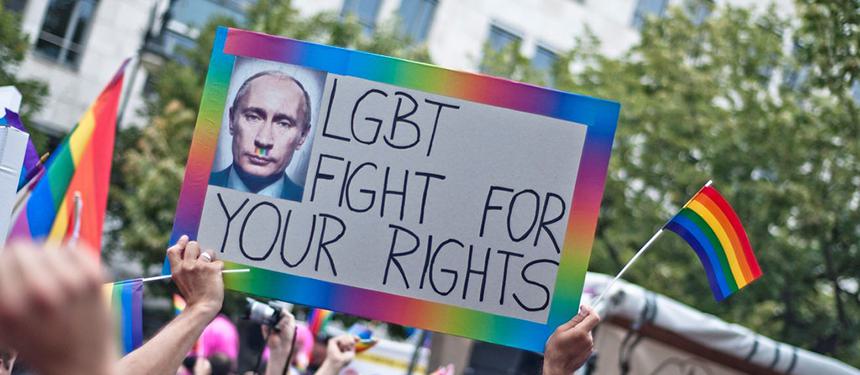Risk Outlook 2023: Focus on LGBTQ+ risks

While the security environment for members of the LGBTQ+ community has generally improved in 2022, staff that identify as LGBTQ+ will continue to face unique challenges when conducting international travel or long-term deployments.
Countries and territories worldwide approach legislation relating to LGBTQ+ activity differently, ranging from full equal rights and protections against discrimination to the death penalty for same-sex relations. Discrimination against LGBTQ+ people creates severe challenges for talent mobility, retention and development.
Same-sex marriage
There are currently 34 countries where same-sex marriage is recognised. Discussions regarding the recognition of same-sex marriage are ongoing in the Czech Republic, Greece, Israel, India, Liechtenstein, Philippines and Thailand.
Across the course of the year, significant developments were seen across the world as same-sex marriages became legalised or recognised in Chile, Switzerland, Cuba and Andorra. In October, Slovenia became the first post-soviet republic to recognise same-sex marriages and adoption rights to same-sex couples, while Tamaulipas became the last of Mexico’s states to authorise same sex-unions. Most recently, Tokyo’s metropolitan government began issuing partnership certificates to same-sex couples living in Japan’s capital, allowing them to be treated as married couples in areas like housing, health and welfare.
However, 32 countries and four jurisdictions worldwide passed constitutional amendments that explicitly prohibit the legal recognition of same-sex marriage and sometimes other forms of legal unions.
Guatemala's Congress passed a law that explicitly banned same-sex marriage, while the Privy Council of the United Kingdom upheld the Caymanian and Bermudan constitutional bans on marriages between same-sex people. Singapore's Prime Minister announced plans to reform the constitution to prevent the legalisation of same-sex marriage, which represents a de-facto ban.
Transgender legislation
Improvements in transgender legislation worldwide have also been reported, with further legislative developments expected in 2023. Countries including Finland, Denmark and Mexico have implemented legislation to guarantee the right to self-determination of gender without a requirement for surgery or sterilisation.
However, controversial decisions regarding elite transgender athletes continued to be criticised by LGBTQ+ organisations, including the one made by the Irish Rugby Football Union to ban transgender women from playing contact rugby and the one made by the International Swimming Federation (Fina) to ban transgender women from female competitions. The body suggested the creation of a specific category for transgender athletes instead.
Conversion therapy has been banned in numerous countries through 2021 and 2022, including Canada, Chile, India, France, Greece and New Zealand. In the US, Wisconsin, Michigan, Minnesota and Pennsylvania are the latest states to rule that federal and state funds cannot be allocated to conversion therapy. The ban on conversion therapy approved by the United Kingdom in May does not cover transgender people, a decision heavily criticised by LGBTQ+ associations. Countries in the process of discussing potential bans on conversion therapy include Ireland, Israel, Norway, Denmark and Finland.

LGBTQ+ staff will continue to face unique challenges in 2023
LGBTQ+ issues are expected to be a continued source of political polarisation around the world. The increasing popularity of far-right political parties in Europe, including the recently-elected Brothers of Italy, the Swedish Democratic Party, and the Polish Law and Justice Party, underscores the increasing use of homophobic narratives to score political points.
In the US, Republicans in Congress laid the groundwork for an anti-transgender law which would block funding to colleges that allow transgender women to participate in sports with cisgender women and sanction schools that disobey previously-issued state laws regarding the sharing of LGBTQ+ materials with minors. While it is unlikely the bills will become law this year since the Democrats narrowly control both chambers of Congress, they may be passed in early 2023 after Republicans regained control of Congress following the November 2022 midterm elections.
Societal and cultural considerations towards LGBTQ+ issues are likely to remain unchanged in the short-to-medium term. Of the 68 countries that criminalise same-sex relations worldwide, 33 are in Africa. While some progress has been made in recent years, several nations continue actively enforcing discriminatory laws. Discriminatory attitudes are likely to remain in 2023, with minimal changes to legislation expected.
While many developments can be expected in the Asia Pacific region, including the potential decriminalisation of same-sex relations in Sri Lanka and the legalisation of same-sex unions in Thailand and India, discriminatory policies are likely to remain in countries such as Afghanistan, China, Indonesia, Malaysia and Pakistan.
The security environment in multiple eastern European, Middle Eastern and North African countries continue to be assessed as high or extreme for LGBTQ+ individuals.
Organisations should have appropriate risk mitigation in place for LGBTQ+ travel
Create an open environment. If employees are comfortable disclosing their sexual orientation and gender identity, travel risk assessments should be bespoke and consider the location and purpose of travel, as well as the prevailing legal, cultural, logistical and security risks they are likely to face. However, many employees may not feel comfortable disclosing their sexual orientation and it is, therefore, important that organisations have accessible LGBTQ+ travel risk mitigation advice. This can include having LGBTQ+ travel resources available to everyone within the company, or offering access to a platform like Healix’s LGBTQ+ e-learning modules. This ensure that all members of your workforce can discreetly access information to keep themselves safe.
Issue country-specific guidelines. These could include informing LGBTQ+ employees to hold business meetings at inconspicuous venues, informing of when large LGBTQ+ events may be staged and what precautions to take, or suggesting ways that LGBTQ+ employees can reduce their profiles. Monitoring our Healix Sentinel Travel Oracle app can be useful for pre-empting potentially volatile protests.
Ensure that ample legal protections are in place, and that employees know how to access these services. As LGBTQ+ employees may face detention, deportation, assault, or imprisonment in some locations, it is advisable to ensure that employees have access to appropriate legal advice and support. Reach out to national embassies and consulates to establish the level of consular support that may be available should it be required.
Travellers can reduce their risk profile by:
- Maintain a low profile at all times - even in locations where society is considered tolerant to homosexuality.
- Remain vigilant and ignore provocations. Inform a relevant line manager or HR contact.
- Avoid public displays of affection where possible.
- Ensure you exercise discretion when disclosing sexual orientation.
- Exercise caution using online LGBTQ+ social media platforms.
- Remain aware of the risks associated with LGBTQ+ venues and ‘gay friendly’ neighbourhoods.




